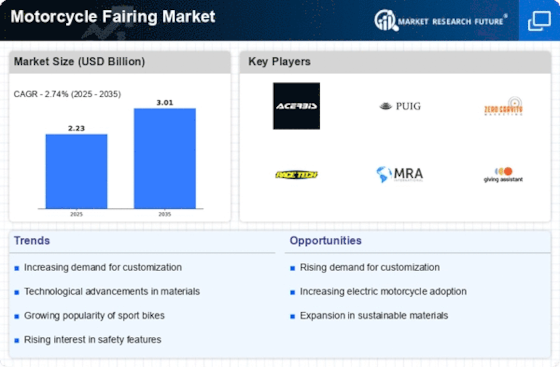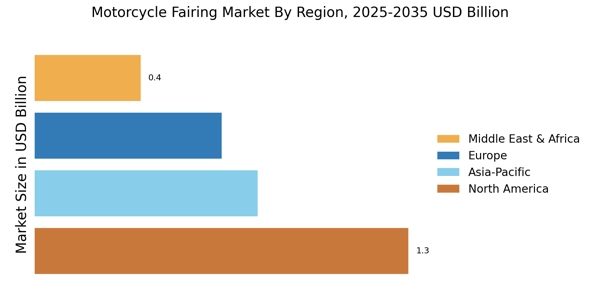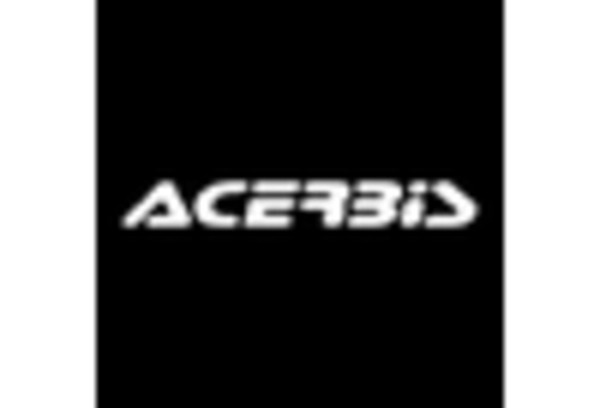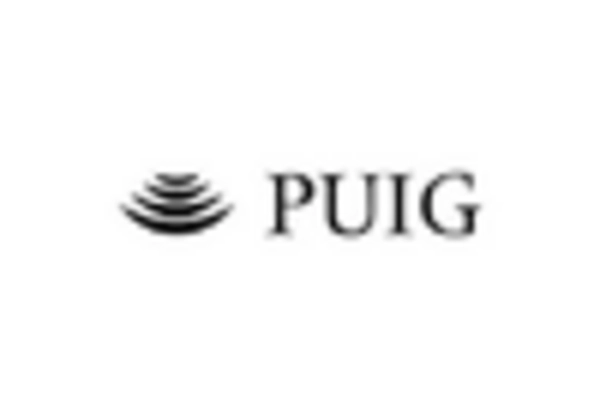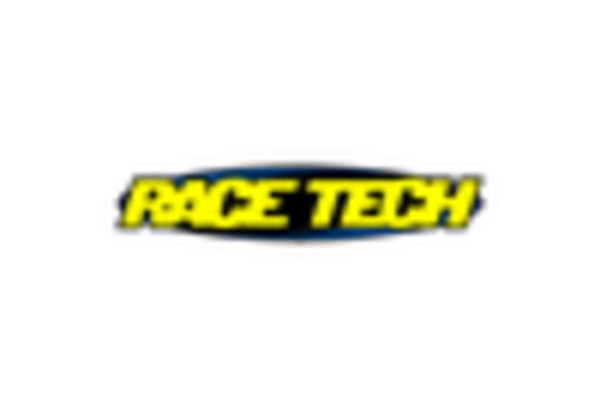Increasing Motorcycle Sales
The Motorcycle Fairing Market is closely linked to the overall sales of motorcycles, which have shown a steady increase in recent years. According to recent data, motorcycle sales have risen by approximately 4% annually, driven by factors such as urbanization and a growing preference for two-wheeled transportation. This trend is particularly evident in emerging markets, where motorcycles are often seen as a cost-effective and efficient mode of transport. As more individuals purchase motorcycles, the demand for fairings and other accessories naturally follows suit. This correlation suggests that the Motorcycle Fairing Market is poised for growth, as manufacturers align their strategies to capitalize on the rising number of motorcycle owners.
Growth of E-commerce Platforms
The rise of e-commerce platforms has significantly impacted the Motorcycle Fairing Market, providing consumers with greater access to a wide range of products. Online retail has transformed the way consumers shop for motorcycle accessories, including fairings. With the convenience of online shopping, consumers can easily compare prices, read reviews, and access a broader selection of products than ever before. This shift towards e-commerce is expected to continue, with online sales projected to account for a larger share of the market. As a result, manufacturers and retailers in the Motorcycle Fairing Market are increasingly investing in their online presence to capture this growing segment of consumers who prefer the ease of purchasing motorcycle accessories online.
Focus on Safety and Performance
Safety and performance considerations are becoming increasingly paramount in the Motorcycle Fairing Market. Riders are more aware of the importance of protective gear and components that enhance their riding experience. Fairings serve a dual purpose: they not only improve the aerodynamics of motorcycles but also provide a layer of protection against wind and debris. As safety regulations become more stringent, manufacturers are compelled to innovate and produce fairings that meet these evolving standards. This focus on safety and performance is likely to drive growth in the Motorcycle Fairing Market, as consumers prioritize products that enhance their riding experience while ensuring their safety on the road.
Rising Demand for Motorcycle Accessories
The Motorcycle Fairing Market experiences a notable surge in demand for motorcycle accessories, driven by an increasing number of motorcycle enthusiasts. As riders seek to enhance both the aesthetics and performance of their motorcycles, fairings have become a focal point. The market for motorcycle accessories is projected to grow at a compound annual growth rate of approximately 5.5% over the next few years. This growth is indicative of a broader trend where consumers are willing to invest in high-quality components that not only improve the look of their bikes but also contribute to aerodynamics and protection. Consequently, manufacturers in the Motorcycle Fairing Market are responding by innovating and diversifying their product offerings to cater to this expanding consumer base.
Technological Advancements in Manufacturing
Technological advancements play a pivotal role in shaping the Motorcycle Fairing Market. Innovations in manufacturing processes, such as the adoption of computer-aided design (CAD) and 3D printing, have revolutionized the way fairings are produced. These technologies enable manufacturers to create more intricate designs with improved precision and reduced lead times. Furthermore, the integration of lightweight materials, such as carbon fiber and advanced plastics, enhances the performance characteristics of fairings. As a result, the Motorcycle Fairing Market is witnessing a shift towards more durable and efficient products, which are likely to attract a broader range of consumers. The ability to produce customized fairings at scale also opens new avenues for market growth.


